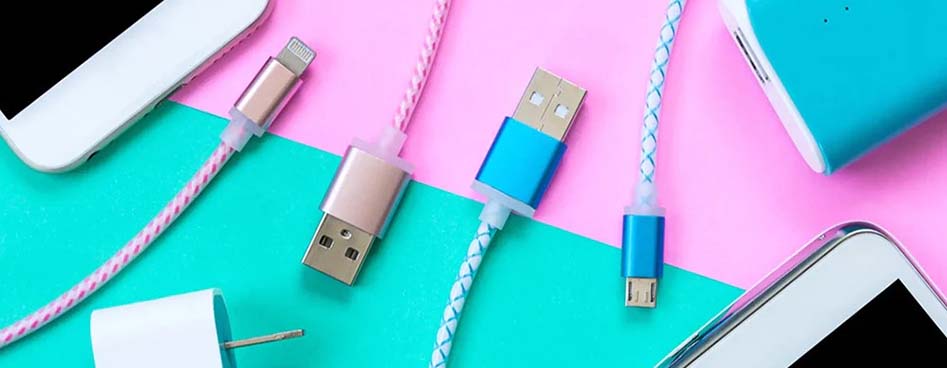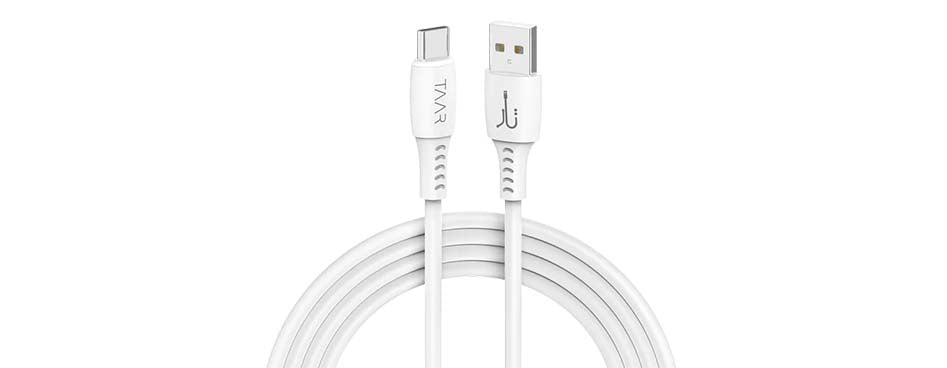The Top Charging Cable Myths: Debunked
In our modern digital age, where our daily lives revolve around an array of electronic devices, the act of charging has become an absolute necessity. However, as indispensable as charging cables are, they have become the subject of various myths and misconceptions, creating a cloud of uncertainty around their true impact on our devices. It is now more critical than ever to embark on a journey of knowledge, unraveling these myths, and shedding light on the truth that lies behind the enigma of charging cables.
Myth #1: Charging Cables Can't Affect Battery Life
One common misconception that has pervaded the realm of charging technology is the belief that the charging cable used has no bearing on the overall health of your device's battery. However, it's crucial to understand that the type and quality of your cable can indeed play a pivotal role in determining your battery's longevity and well-being.
By opting for high-quality cables you can effectively mitigate issues such as voltage fluctuations and excessive heat generation. Over time, these factors can have a significant impact on extending your battery's lifespan, ensuring that your device remains in optimal working condition for longer periods. In essence, the choice of a charging cable is not a trivial matter; it can substantially influence the health and longevity of your device's battery.
Myth #2: All Charging Cables Are the Same
It's a common misunderstanding that charging cables are universally interchangeable, with one cable serving the same purpose across all devices. However, this belief couldn't be farther from the truth. In reality, charging cables come in various types, including USB-C, Lightning, and Micro USB, each tailored to meet the unique charging requirements of specific devices.
To debunk this myth, it's crucial to underscore the significance of selecting the right cable for your particular device. The type of cable you use has a direct impact on not only the charging speed but also the overall compatibility of your device. Consider renowned cable manufacturers that offers a diverse range of cables, each meticulously designed for distinct purposes. By choosing a cable designed for your specific device, you can ensure that it operates at its optimal efficiency. This not only prevents common issues like slow charging but also eliminates compatibility hiccups, offering you a seamless and efficient charging experience.
Myth #3: You Can't Overcharge Your Device
One prevalent misconception in the realm of device charging is the belief that overcharging your device is an issue of the past. However, overcharging remains a genuine concern, and understanding its implications is crucial to maintaining the longevity and performance of your device.
Overcharging occurs when a device continues to receive power after it has reached its full battery capacity. This can lead to a range of problems, including overheating, which can be damaging to both your device's battery and internal components. As a result, over time, overcharging can cause battery degradation, reduced battery life, and compromised overall device performance.
To counteract this myth, it's essential to highlight the importance of choosing chargers equipped with modern, intelligent technology. These chargers automatically stop the charging process when your device reaches full capacity, ensuring a safe and efficient charging experience.
Myth #4: Cheap Cables Are Just as Good as Expensive Ones
It's a common belief that choosing budget-friendly, off-brand charging cables is a frugal and practical choice. However, it's crucial to understand the potential hazards associated with these cheaper alternatives.
In many cases, these lower-priced cables lack the stringent quality standards and safety measures adhered to by reputable brands. Counterfeit or low-quality cables, while initially seeming like a cost-effective option, can result in significant problems. Not only might they fail to charge your device correctly, leaving you with frustratingly slow charging speeds, but they can also pose a danger to your device and, more critically, to your safety. In some instances, these subpar cables can even pose fire hazards, putting your property and well-being at risk.
To avoid these potential dangers, it's imperative to invest in high-quality cables from trusted manufacturers. While the initial cost might be slightly higher, it's a small price to pay for the peace of mind knowing that your device is protected from harm, will charge efficiently, and that you and your property are safe from potential risks.
While the allure of cheaper cables may be strong, the potential consequences far outweigh the initial savings. Prioritizing safety, device longevity, and reliable charging by choosing reputable brands is a wise and responsible choice that should not be underestimated.
Myth #5: Longer Cables Are Slower at Charging
A common misconception regarding charging cables is the belief that longer cables inherently lead to slower charging speeds. However, it's essential to understand that cable length alone does not dictate charging efficiency. In fact, a longer cable can be just as efficient as a shorter one when it comes to charging your device.
When it comes to charging speed, the critical factors are the cable's quality and the power output of the charger. High-quality cables, regardless of their length, are designed to minimize electrical resistance and optimize the flow of power to your device. Similarly, the charger's power output plays a significant role in determining how quickly your device charges.
While cable length may affect convenience and reach, it does not automatically equate to slower charging. The quality of the cable and the charger's power output are the primary influencers of charging speed. Therefore, it's important to prioritize cable quality and charger compatibility over length when selecting the right charging accessories for your device.
Myth #6: Wireless Charging Is Always Safer
The belief that wireless charging is inherently safer than traditional wired charging is a common misconception. While wireless charging indeed offers convenience, it comes with its own set of concerns that users should be aware of.
To debunk this myth, it's important to recognize that wireless charging can, under certain conditions, lead to overheating, which can have adverse effects on your device's battery and performance. Experts in the field recommend a cautious approach to wireless charging. To ensure safety, it's essential to use wireless chargers that meet industry safety standards. These chargers are designed to prevent overheating and potential damage to your device, offering a safer and more reliable charging experience.
Myth #7: Cables Can Only Transmit Power
It's a prevailing myth that charging cables serve a singular purpose – the transmission of power. However, the reality of modern cables is far more versatile and functional than this misconception suggests.
In today's technology landscape, many cables are engineered to support not only power transfer but also data transfer and a range of other functionalities. These modern cables are capable of facilitating fast data transfer between devices, enabling file sharing, syncing, and even powering additional features such as peripheral devices.
To debunk this myth, it's essential to emphasize the importance of selecting the right cable to meet your specific needs. Whether you require fast data transfer or efficient charging, the type of cable you choose plays a pivotal role. It's crucial to understand the capabilities of various cable types and select the one that aligns with your intended use.
The world of cables has evolved well beyond the mere transmission of power. Modern cables offer a spectrum of functionalities, making it vital to make an informed choice to meet your specific needs, whether it's efficient data transfer or rapid charging.
Myth #8: Cables Don't Need Maintenance
It's a common misconception that charging cables are maintenance-free accessories, destined to work flawlessly without any care or attention. However, like any electronic accessory, cables require proper care and maintenance to ensure they remain functional and have a long lifespan.
To debunk this myth, it's important to highlight the expert-recommended practices for cable care and maintenance. Simple yet effective measures, such as avoiding excessive bending or twisting, securing cables properly to prevent wear and tear, and keeping them clean from dust and debris, can significantly extend the lifespan of your cables. These practices are not just about prolonging the life of your cables but also ensuring a consistent and reliable charging and data transfer experience.
Conclusion: Making Informed Charging Cable Choices
In a world where myths and misconceptions about charging cables abound, making informed choices is paramount. Reputable cable manufacturers play a pivotal role in ensuring you have the right cables and accessories for your devices, the key takeaway here is to prioritize quality and reliability when selecting your charging cables.
By choosing high-quality cables, irrespective of the brand, and adhering to best practices for cable care and usage, you can safeguard your devices, extend their lifespan, and enjoy a consistently reliable charging experience. It's not merely about the convenience of charging but also about the safety and performance of your valuable electronic companions.
So, in conclusion, we encourage you to make the wise choice by always seeking out trusted cable manufacturers, to meet your charging cable needs. Your devices will thank you for it with dependable performance and a longer lifespan. Choose Taar and embrace the difference in your charging experience!





Leave a comment
This site is protected by hCaptcha and the hCaptcha Privacy Policy and Terms of Service apply.